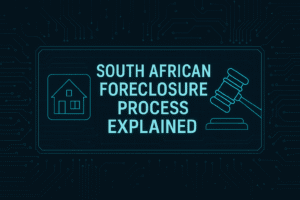Understanding Mortgage Loan Qualification: A Comprehensive Guide
Securing a mortgage is a significant milestone for many people, often marking the transition from renting to homeownership. However, before you can step into your dream home, you must navigate the intricacies of mortgage loan qualification. This process can seem daunting, but understanding the key components can empower you to make informed decisions. In this blog post, we will break down the essential elements of mortgage loan qualification, helping you understand what lenders are looking for and how to prepare yourself for the application process.
What is Mortgage Loan Qualification?
Mortgage loan qualification refers to the process by which lenders assess whether a borrower is eligible for a mortgage loan. This assessment typically involves evaluating the borrower’s financial health, creditworthiness, and ability to repay the loan. Lenders use various criteria to determine whether to approve a mortgage application and at what terms.
Key Factors in Mortgage Loan Qualification
1. Credit Score
Your credit score is one of the most critical factors in mortgage loan qualification. It reflects your creditworthiness and is based on your credit history, including your payment history, credit utilization, length of credit history, types of credit accounts, and recent inquiries.
– Good Credit Score: A score of 700 or higher is generally considered good, qualifying you for better interest rates and terms.
– Fair Credit Score: A score between 620 and 699 may still qualify you for a mortgage, but expect higher interest rates.
– Poor Credit Score: A score below 620 can make it challenging to secure a mortgage without a larger down payment or a co-signer.
2. Debt-to-Income Ratio (DTI)
The debt-to-income ratio is another vital metric lenders use to assess your financial stability. DTI is calculated by dividing your total monthly debt payments by your gross monthly income. Lenders prefer a DTI ratio of 36% or lower, but some may allow up to 43% for certain loan types.
– Front-End DTI: This ratio considers only housing-related expenses (mortgage payment, property taxes, insurance) divided by your gross income. It should ideally stay below 28%.
– Back-End DTI: This includes all monthly debt obligations (housing expenses plus credit cards, car loans, etc.) divided by your gross income.
3. Employment History and Income Stability
Lenders want to see a steady income stream to ensure you can meet your mortgage payments. Generally, they prefer at least two years of consistent employment in the same field. If you’re self-employed, you may need to provide additional documentation, such as tax returns or profit and loss statements.
4. Down Payment
The down payment amount can significantly impact your mortgage qualification. A larger down payment reduces the lender’s risk and can improve your chances of approval and lower your monthly payment. While traditional loans often require a 20% down payment, there are options available for lower down payments, such as FHA loans (3.5% down) or VA loans (0% down for eligible veterans).
Different types of loans come with varying qualification criteria. For example:
– Conventional Loans: Typically require higher credit scores and down payments.
– FHA Loans: Designed for low-to-moderate-income borrowers, with lower credit score requirements and down payment options.
– VA Loans: Available to veterans and active-duty military members, often with no down payment or mortgage insurance.
– USDA Loans: Aimed at rural homebuyers, these loans are for low-to-moderate-income applicants and also require no down payment.
6. Assets and Reserves
Lenders may also look at your assets and reserves, which include savings, investments, and other properties. Having additional reserves (typically enough to cover a few months’ worth of mortgage payments) can strengthen your application and demonstrate your financial stability.
The Mortgage Loan Qualification Process
Step 1: Gather Documentation
Before applying for a mortgage, gather the necessary documentation, including:
– Recent pay stubs
– W-2 forms and tax returns for the past two years
– Bank statements
– Documentation of additional income (bonuses, alimony, etc.)
– Proof of assets (investment statements, retirement accounts)
Step 2: Pre-Qualification vs. Pre-Approval
– Pre-Qualification: This is an informal process where a lender provides an estimate of how much you might be able to borrow based on the information you provide. It is a useful first step but is not a guarantee of loan approval.
– Pre-Approval: This involves a more in-depth analysis of your financial situation. Lenders will perform a credit check and verify your financial documents, giving you a more accurate picture of what you can afford and enhancing your credibility when making an offer on a home.
Step 3: Apply for a Mortgage
Once you’ve been pre-approved, you can officially apply for a mortgage. This process will involve filling out the loan application and providing any additional documentation the lender requests.
Step 4: Underwriting
After your application is submitted, it goes through underwriting, where the lender assesses your risk profile. The underwriter will review your financial documents, credit history, and property appraisal.
Step 5: Closing
If approved, you’ll move to the closing stage, where you’ll sign the necessary paperwork and finalize the loan. Be prepared to pay closing costs, which can range from 2% to 5% of the loan amount.
Frequently Asked Questions (FAQ) About Mortgage Loan Qualification in South Africa
1. What is mortgage loan qualification in South Africa?
In South Africa, mortgage loan qualification is the process where lenders assess your financial health, credit record, and ability to repay a home loan. Lenders look at your credit score, income stability, debt levels, and down payment ability to determine if you’re eligible for a mortgage.
For more insights into the mortgage landscape in South Africa, visit our guide on Mortgage Loan News.
2. What credit score do I need to qualify for a home loan in South Africa?
In South Africa, a credit score above 600 is generally required to qualify for a home loan. A higher score, closer to 700, can help you secure more favourable interest rates. If your credit score is below 600, it may be more challenging to get approval, and you might need to provide a larger down payment or work with alternative lending options.
To improve your credit score and qualify for a home loan, visit our guide on How to Improve Your Credit Score for Mortgage Approval.
3. How does my debt-to-income (DTI) ratio affect my mortgage qualification in South Africa?
In South Africa, lenders generally look for a DTI ratio below 30%, which means your total debt obligations, including your future bond payment, should not exceed 30% of your gross income. If your DTI is higher, it may limit the amount you qualify for.
For debt management strategies, check out our post on Debt Consolidation in South Africa.
4. What is the difference between pre-qualification and pre-approval in South Africa?
Pre-qualification is a quick estimate of what you might be able to borrow based on basic information you provide. Pre-approval is a more thorough process where the bank assesses your financial records, credit score, and affordability, giving you a more concrete amount you can borrow.
Learn more about these processes on our Mortgage Loan Pre-Approval page.
5. How much down payment do I need for a home loan in South Africa?
In South Africa, the recommended down payment is usually 10% to 20% of the property’s value. However, some banks may offer 100% bonds if you meet certain conditions, such as a strong credit score and solid financial background. First-time buyers may also qualify for government subsidies through the FLISP programme.
For more on available loan options, visit our Loan Options page.
Conclusion
Understanding mortgage loan qualification is crucial for anyone looking to buy a home. By familiarizing yourself with the key factors lenders consider, you can better prepare yourself for the application process and increase your chances of securing a mortgage. Remember, each lender may have slightly different criteria, so it’s wise to shop around and consult with multiple lenders to find the best fit for your financial situation. With the right preparation and knowledge, you can confidently take the steps toward homeownership. Mortgage Loan Solutions In South Africa



